| Country | Student fee |
|---|---|
Austria 2013/14 - student fees and grants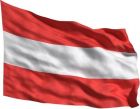 |
EU students and those who are accorded the same rights do not have to pay tuition fees.
Austrian students, EU students and students with equal status at universities and Pädagogische Hochschule do not have to pay fees, but if they exceed the minimum study duration for more than a year, they have to pay EUR 363.36 per semester. All other students at Pädagogische Hochschule have to pay fees (EUR 363.36 per semester). Students at universities and Pädagogische Hochschule can be exempt from paying in cases such as studies or internships within transnational mobility programmes, illness, pregnancy and disabilities. International students (i.e. non-EU and EEC students) at universities have to pay fees of EUR 726.72 per semester, with the exception of students from the least developed countries. Students from developing countries may be exempt from the fees according to a respective decision of the university. Providers of the Fachhochschulen (universities of applied sciences) are entitled to charge fees up to the maximum amount of EUR 363.36 per semester. Additionally, the providers are entitled to charge cost-covering fees, which are usually higher than EUR 363.36 per semester, from third-country students. |
Belgium - flemish 2013/14 - student fees and grants |
A fixed registration fee of EUR 66.50 is paid at the beginning of an academic year. In addition, students pay the flexible tuition fee according to a number of ECTS credits followed. Each credit point carries a fee of EUR 9.10. The amount of fees varies with the income of the student and the type of study programme. If a student is eligible for a grant, the maximum payable fee amount is EUR 80. Non-EU students may be requested to pay higher tuition fees. |
Belgium - french 2013/14 - student fees and grants |
Fee limits are set by the government of the French Community of Belgium. Fee levels depend on the student's financial situation. For academic year 2013/14, the maximum fee is EUR 837, the intermediate fee is EUR 374 (for students not receiving a grant but considered as lower income) and there are no fees for those students receiving a grant. There are some differences in fees between universities and non-university higher education institutions. Until 2017 non- university higher education institutions can charge complementary registration and administrative fees in addition to registration fees, but the total amount cannot exceed EUR 837/year. Those complementary registration and administrative fees range from EUR 0 (for grant holders) to EUR 179 depending on the type of programme and the financial situation of students; they apply to all students. Those fees will continuously decrease till 2017 when they will cease to exist. Students from outside the EU have to pay additional specific fees. For programmes organised by university colleges and arts colleges, the additional specific fees (droits d'inscription spécifiques) are fixed by law: EUR 992 for professional- oriented programmes and EUR 1 487 for academic-oriented programmes of 1st cycle; EUR 1 984 for programmes of 2nd cycle. For programmes organised by universities, it is fixed by law that the maximal amount should not exceed 5 times the registration fees. In practice, universities (through the Interuniversity Council) have adopted harmonised amounts. Those amounts differ depending on the country of origin of the students (1). The complementary registration and administrative fees mentioned in the previous bullet remain applicable to non-EU students. |
Belgium - german 2013/14 - student fees and grants | Higher education provision exists only at ISCED 5B level. All students have to pay fees at registration. Amounts range in theory from EUR 100 to 600. In practice nearly all students pay the same amount of EUR 425. |
Bulgaria 2013/14 - student fees and grants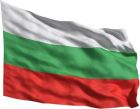 |
Public higher education institutions define their own fees, but maximum amounts are set by the government. Student fees depend on the programme and field of study. The lowest fees are paid in the following fields of study: pedagogy, economics, administration and management. The first cycle fees in the state universities for full-time studies range from BGN 300 to BGN 1 450 and for part-time studies from BGN 115 to BGN 980. he second cycle fees for full-time studies range from BGN 300 to BGN 1 550 and for part-time studies from BGN 115 to BGN 1 000. Certain categories of students are exempted from paying fees. They include orphans, persons with disabilities, war invalids and senior cadets in military schools. Fees of international students are subject to different rules. |
Croatia 2013/14 - student fees and grants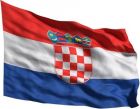 |
Fees for all students of the first year of both cycles are fully covered by the Ministry of Science, Education and Sports. In the following years of study, the amount of student fees depends on a range of criteria set by the individual higher education institutions (e.g. number of ECTS credits and fulfilment of particular study obligations). For some students fees are paid by government, some students pay a certain share of the fee, and some pay the full amount of the fee. [In the academic year 2012/13, full tuition fees were covered by the government for 38 % of students, while 61 % of students participated in fees to some extent]. The fees in both cycles range from HRK 5 000 till 10 000 per year. At bachelor level, 25 % of total number of students (counting all students in all three years, including the ones of the first year who do not pay anything) pay some participation in the fees. At master level the corresponding percentage is 20 %. |
Cyprus 2013/14 - student fees and grants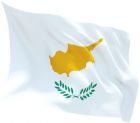 | Higher education institutions can define their own fees within limits set by the Ministry of Education and Culture.
First cycle: fees total EUR 1 709 per semester for Cypriot students and for students admitted from EU countries. These fees are paid fully by the State. International students pay fees. Fees for students admitted from non-EU countries total EUR 3 417 per semester. Second cycle: all students pay fees which range from EUR 5 125 to 10 250. |
Czech Republic 2013/14 - student fees and grants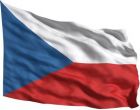 |
Fees are only related to admission procedures and need to be paid once per cycle. No tuition fees are paid by 'typical' higher education students. Students who exceed a regular length of study by at least one year have to pay fees. The fee amounts to at least CZK 7 998/academic year, based on the average cost of a student for the public budget. No maximum is set by law. Students who study in second or further degree programmes have to pay fees (maximum CZK 2 666/academic year). Students of study programmes in a foreign language also have to pay tuition fees and no maximum limit is set by law. Such arrangements are decided by each higher education institution. Fees for international students are the same as for home students. |
Denmark 2013/14 - student fees and grants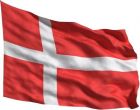 |
No fees for national and EU full-time students. All students studying in part-time courses pay fees set by higher education institutions. International students pay fees set by higher education institutions. |
England 2013/14 - student fees and grants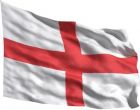 |
1st cycle full-time – fees are set by institutions but capped at a maximum of GBP 9 000 for institutions with an approved access plan (to
safeguard fair access for low income and other under-represented groups) and GBP 6 000 for institutions without an access plan. The
average for 2012/13 was GBP 8 385. Students are not required to pay up front and can apply for a loan to cover the full fee. Repayments
are income-contingent and made at the rate of 9 % of income above the threshold of GBP 21 000. These fees apply to students from all
parts of the UK and from the EU but for students from Wales can be offset by a fee grant from the Welsh Government.
1st cycle part-time – fees are set by institutions but capped at GBP 6 750. Students are not required to pay up front and can apply for a loan to cover the full fee. Repayments as for full-time students. 2nd cycle – fees are unregulated. The ‘most common’ fee (GBP 3 900) represents an indicative amount for doctoral research programmes (which may incorporate masters level study) set by the Research Councils and used as a guide by many institutions. Actual fees charged vary widely, particularly for taught programmes. 1st and 2nd cycle international students – fees are unregulated. |
Estonia 2013/14 - student fees and grants |
From 2013/14 enrolment higher education institutions (HEIs) in both cycles have the right to charge study fees under certain conditions. All students who manage to achieve 30 ECTS per semester and 60 ECTS per year in Estonian language curriculum can study without any fees. If student receives 29 ECTS per semester, HEIs have the right (not obligation) to charge him/her for each ECTS. In other words, any ECTS missing from 100 % study load can be charged. Study fees are regulated by the Government. Maximum cost of one ECTS is EUR 50. Exceptions are made in arts, medicine, veterinary, dentistry (EUR 100) and aircraft piloting (EUR 120). Fees are not regulated for students studying in other language, for part-time students and for HEIs that do not receive state funding (private institutions). |
Finland 2013/14 - student fees and grants | No student fees.
In selected English-language Master's degree programmes, the Finnish higher education institutions can charge tuition fees from non-EU/EEA nationals during the ongoing trial period (2010-2014). |
France 2013/14 - student fees and grants |
The amount of fees per year fixed by the Ministry of Higher Education and Research is EUR 183 in the first cycle (L1, L2, L3) and EUR 254 in the second cycle (M1, M2). However, a number of universities have decided to add associated costs related to specific services (e.g. for diplomas related to continuing learning and training). In some public universities, the tuition fees can reach more than EUR 2 000 per year.
Fees in the grandes écoles and Engineering Schools vary, but the most common amount is EUR 550 per year. However, tuition fees in some of them reach up to EUR 10 000 per year, depending on family income. However, there are grandes écoles which not only deliver education free of charge, but may even pay some students (such students are prospective civil servants and receive a wage from the State), e.g. in école polytechnique and écoles normales supérieures. Students who receive a grant (34.7 % of the student population in 2012/13) are exempted from fees. |
Germany 2013/14 - student fees and grants |
In 15 of the 16 German Länder studying is free of charge (Bavaria decided that fees are not in force as of winter semester 2013/14). Only in Lower Saxony students have to pay fees of maximum EUR 1 000 per academic year, which is defined by law. Only administrative charges are paid by all students. When exceeding the regular study period, students may be liable to pay fees even in those Länder that do not charge fees. Students can be exempt based on need- or merit-based criteria. Different fees may be charged to students from outside the EU and EEA countries. |
Hungary 2013/14 - student fees and grants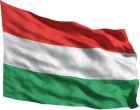 | Higher education institutions (HEIs) specify the amount of fees in accordance with a government decree.
Fees are charged to students without a state-funded place. State-funded places are awarded to students on the basis of their performance in the admission procedure. [2012: 57 % of places were state-funded.] The fees range from HUF 230 000 to 1 600 000 in 1st cycle and from HUF 450 000 to 1 900 000 in 2nd cycle. The fees are between HUF 300 000 and 2 700 000 in undivided long programmes. Best-performing students with non-state-funded status can obtain state-funded status during their studies. On the other hand, state-funded students who exceed the prescribed period of study or do not obtain at least 50 % of the prescribed number of credits and the marks determined by the HEI lose their state-funded status. International students pay the same amount of fees as non-state-funded students. |
Iceland 2013/14 - student fees and grants | All students at public higher education institutions pay administrative registration fee of ISK 60 000 per
academic year. Over 80 % of students at 1st and 2nd cycle study at public higher education institutions.
Government dependent private higher education institutions charge a tuition fee that covers registration costs and teaching. The fee is around ISK 175-400 000 per academic year. The same rules apply to international students. |
Ireland 2013/14 - student fees and grants |
For the first cycle, full-time EU students are exempt from full tuition fees if they meet the terms of the 'free fees scheme', but pay a 'student contribution' of EUR 2 500 per academic year. Full-time EU students who do not meet the terms of the scheme must pay a consolidated fee covering both tuition fee and student contribution - the average EU consolidated fee is EUR 6 000.
For the second cycle, the majority of students pay tuition fees. Part-time fees are generally half of full tuition fees for full-time programmes. International student fees are generally two to three times that of full EU fees and are set by the higher education institutions. |
Italy 2013/14 - student fees and grants |
Higher education institutions (HEIs) define the fees at the beginning of the academic year and they differentiate them according to the students' socio - economic status, field of studies, cycle, study status - full-time or part-time - and year of registration. Furthermore, HEIs are obliged to exempt students benefiting from student support, and they can also exempt some students on the basis of merit. The overall amount of fees at the end of financial year should not be higher than 20 % of public funding. The amount of fees and the exemptions are calculated only ex- post and only for statistical purposes. The amount of fees shown in the diagram is calculated on the basis of the most recent statistical data available and as the mean amounts for all registered students. International students pay the same fees as national students. |
Latvia 2013/14 - student fees and grants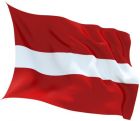 |
Students studying on state subsidised places do not pay fees. 55 % of 1st cycle students and 40 % of 2nd cycle students pay fees.
The majority of students, including those enrolled in evening courses, distance courses or courses offered jointly with other universities pay fees. Fee amounts vary by field and course load. Each higher education institution can set its own fees. The fees range from LVL 680 to 3 400 per year for full-time studies and from LVL 630 to 1 460 for part-time studies in the 1st cycle. In the 2nd cycle fees range from LVL 800 to 4 582 for full-time studies and from LVL 640 to 2 288 for part-time studies per year. For college programmes or short-cycle programmes (ISCED 5B) the fees range from LVL 550 to 900. However, some of the higher education institutions apply a diversified tuition fee amount throughout the study years, i.e. usually the fee in the first year of studies is the lowest. The amounts of fees for international students may differ in some study programmes (e.g. medicine, dentistry, engineering) and range from LVL 980 to 7 028 (2012/13) in the 1st cycle. In the 2nd cycle, fees range from LVL 1 100 to 8 434 for full-time studies and from LVL 650 to 6 470 (2012/13) for part-time studies per year. The students from EU and EEA are treated as home students. |
Liechtenstein 2013/14 - student fees and grants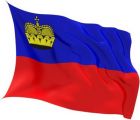 | All students at the University of Liechtenstein pay an annual fee of CHF 1 500 (CHF 750 per semester).
The same amount of fees is applicable to all students including the international ones. |
Lithuania 2013/14 - student fees and grants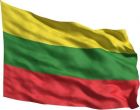 |
Students studying in state subsidised places do not pay fees. There are exceptions after changing study
programme (if study programme fees are higher than previous study programme fees).
All fees vary depending on the study programme (influenced by study field) or study forms (full-time/ part-time). In the first cycle, fees range between LTL 3 238 and 18 162 per year in full-time studies and between LTL 2 159 and 12 108 per year in part-time studies. In the second cycle, fees range between LTL 7 308 and 21 578 per year in full-time and from LTL 4 872 to 14 386 per year in part-time studies. Higher education institutions (HEIs) can determine higher tuition fees for citizens of non-EU and non-EEA countries. |
Malta 2013/14 - student fees and grants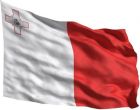 | 1st cycle: No fees apply for Maltese and EU students following first-cycle full-time courses at the University of Malta and
the Malta College of Arts, Science and Technology (MCAST). Part-time courses are only offered by the University of
Malta. Fees for part-time studies range from EUR 350 to 1 200/semester. The most common value is EUR 350/semester.
2nd cycle: An annual enrolment fee of EUR 400 applies for all Maltese and EU students following second-cycle full-time day courses at the University of Malta. Students following second-cycle degree courses offered jointly by foreign universities pay higher fees which are not quoted in the table. MCAST does not provide second-cycle degree courses. Full-time evening courses range from EUR 1 100 to 1 600/semester (most common EUR 1 450) and part-time studies from EUR 550 to 2 600/semester (most common value EUR 725). International students pay fees for both first-cycle and second-cycle degree programmes, which fees are higher than those paid by Maltese and EU nationals. |
Montenegro 2013/14 - student fees and grants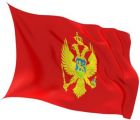 | 25 % of total number of students at the public University of Montenegro (only public higher education institution in
Montenegro), have status of the budget financed students. 75 % of students at the University of Montenegro pay
tuition fee.
Minimum fee for self-financed students is EUR 500/year for the first cycle; maximum fee is EUR 1 000/year. The most common fee in the first cycle is EUR 500/year. In the second cycle (master study programme) fees are between EUR 1 500 and 2 000/year. All master degree students at the public university are obliged to pay fees. In accordance with the Law on Higher Education foreign citizens have the right to be admitted into the study programmes in Montenegro under the same conditions as Montenegrin citizens who pay the tuition fees in compliance with this law and the institution statute, unless otherwise stipulated by an international agreement. |
Norway 2013/14 - student fees and grants | No fees at public higher education institutions, catering for over 85 % of all students in Norway.
Government-dependent private higher education institutions may on certain conditions charge tuition fees. International students do not pay fees at public higher education institutions. |
Nothern Ireland 2013/14 - student fees and grants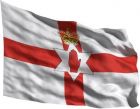 |
1st cycle full-time – fees are set by institutions but capped at a maximum of GBP 3 575 for institutions with an access agreement outlining
its provision of student support, including bursaries and outreach activities. Students are not required to pay up front and can apply for a
loan to cover the full fee. Repayments are income-contingent and made at the rate of 9 % of income above the threshold of GBP 16 365.
These fees apply to Northern Ireland and EU student; fees for UK students from England, Scotland and Wales are charged up to GBP 9 000
though for students from Wales this can be offset by a fee grant from the Welsh Government.
1st cycle part-time – fees are unregulated. 2nd cycle – fees are unregulated. The ‘most common’ fee (GBP 3 900) represents an indicative amount for doctoral research programmes (which may incorporate masters level study) set by the Research Councils and used as a guide by many institutions. Actual fees charged vary widely, particularly for taught programmes. 1st and 2nd cycle international students – fees are unregulated. |
Poland 2013/14 - student fees and grants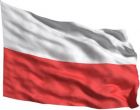 | Students pay administrative fees which include the issue of student ID cards, student record books and diplomas.
Fee amounts are defined annually by the Minister of Science and Higher Education. Students also pay a fee related
to enrolment procedures. The maximum possible amount of this fee is defined annually by the Minister, while the
actual amounts are decided by rectors of individual higher education institutions (HEIs). The amount of the fees
altogether is approximately PLN 170. The amount is paid once per cycle not every year.
Tuition fees, set by public higher education institutions, are generally paid by part-time students only with exemptions and reductions possible mainly on the basis of low economic status or excellent results. Detailed rules regulating the actual amounts of tuition fees and the mode and conditions for exemptions are laid out by the senates of particular institutions. Full-time students in public HEIs pay fees only if they repeat a study course due to unsatisfactory academic results. Students from the EU and EFTA countries and some other defined categories of students (e.g. students with refugee status) study according to the same rules as Polish citizens. Fees for international students other than these are decided by the senates of individual HEIs. |
Portugal 2013/14 - student fees and grants | The annual tuition fee for 1st cycle courses, integrated 2nd cycle courses (mestrados integrados) and for 2nd cycle
courses (mestrados) that are legally needed after the 1st cycle course for the practice of a specific profession is fixed
by each public higher education institution and range from EUR 630.50 to EUR 1 065.72.
For other cases in the 2nd cycle courses, tuition fee is fixed freely by public higher education institutions. The minimum value of the above fees is calculated as a 1.3 times the national minimum wage at the beginning of each school year. The maximum wage value is updated every year according to the rate of inflation. The most institutions adopt the maximum value. International students pay higher fees than national students. |
Romania 2013/14 - student fees and grants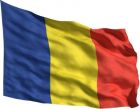 | Each university senate decides on the level of fees for all programmes. The senate also decides on exemptions
based on need or merit. All students pay administrative fees to register.
Uniform allowances are calculated based on the number of students and the amount of state budget. In the academic year 2012/13, the fees range as follows: RON 2 341 for social science fields (36 % of students); RON 4 097 for technical fields (36 % of students) and maximum of RON 12 571 for arts (0.09 % of students). International students pay fees. The value of the minimum fee is set by the law 1/06.01.2010 for each field. |
Scotland 2013/14 - student fees and grants |
For the first cycle, the Scottish Government pays the tuition fees for Scottish and EU students. For 2013/14, fees
are set at GBP 1 820.
Scottish (and non-UK EU) students do not pay tuition fees to study at Scottish universities, but must pay full fees to study at universities in other parts of the UK. Students from England, Wales and Northern Ireland are required to pay fees to study at universities in Scotland. Fees are charged to students from the rest of the UK at a level of up to a maximum of GBP 9 000. The GBP 9 000 cap on fees for students from the rest of the UK is set by the sector as part of a voluntary agreement. This will, going forward, be set in legislation through the Post 16 Education (Scotland) Bill which is due to come into force in November 2013. Fees for international (non-EU) students are unregulated and set by the higher education institutions. The fee and support system has been developed for students in the first cycle. In the second cycle, fees are unregulated, differing by field of study and by mode of attendance (i.e. full- or part-time). |
Slovakia 2013/14 - student fees and grants | All students pay registration fees of EUR 10 to 100 per academic year. Full-time students of public higher
education institutions not exceeding the 'regular' length of study for the study programme concerned do not pay
tuition fees.
Students who exceed a 'regular' length of study, or who study two or more programmes concurrently in one academic year have to pay tuition fees which cannot exceed EUR 1 525/academic year for both first and second cycle. Students admitted to an external/part-time study programme have to pay fees from EUR 630 to 1 960/year in the first cycle and from EUR 950 to 2 940/year in the second cycle. Tuition and other fees at public higher education institutions cannot exceed 50 % of the average costs of full-time education. Non-EU students pay higher tuition fees of EUR 2 000 to 10 000/year. |
Slovenia 2013/14 - student fees and grants | Full-time students of public higher education institutions on state-funded places do not pay tuition fees. They pay
only registration charges and costs of examinations that are repeated.
Full-time students at public higher education institutions without a state-funded study place, part-time students and international students from outside EU pay the same fees. Amounts range from EUR 1 210 to 9 375 for the first cycle and from EUR 1 260 to 12 462 for the second cycle. Amounts apply to University of Ljubljana. |
Spain 2013/14 - student fees and grants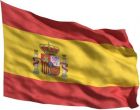 |
The amount of fees is determined by the kind of the studies, the number of ECTS taken and the number of exams
failed in each subject. In addition, amounts differ between regions as each one has a different range.
For international students (from outside the European Union) who have not set their residence in Spain, the fees can be increased, depending on the region. Exemptions from fees are based in need criteria (family income being the most significant one), but a minimum level of academic performance is also required. Also, large families and disabled persons have very significant discounts, and may even be exempt. In the current economic crisis context, the government approved a new decree-act on urgent measures for rationalization of public expenditure in education in 2012. One of the measures adopted in this act is that university students have to cover between 15 % and 25 % of the real total cost of their studies (to be decided by each Autonomous Community). These urgent measures were implemented in the academic year 2012/13. |
Sweden 2013/14 - student fees and grants | No fees for Swedish/EU/EFTA/EEA students.
Other students pay fees since autumn 2011. Higher education institutions determine the size of the fees, based on the principle of full cost coverage. |
Switzerland 2013/14 - student fees and grants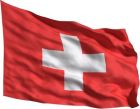 | Higher education institutions define their own fees. Fees usually comprise fees for administration (admission,
registration, certification) and tuition. Additional mandatory contributions for examinations, libraries, sports facilities,
social and cultural institutions are possible.
Some categories of students pay reduced fees (students on leave of absence, medical students during their placement year, doctoral students). Students in difficult economic circumstances can apply for a waiver or reduction of tuition fees at most higher education institutions. Some higher education institutions charge higher fees for both students from within and outside the EU than for Swiss students. |
Turkey 2013/14 - student fees and grants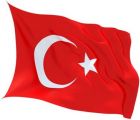 | 1st cycle university students enrolled in a morning education do not pay fees. Public universities are financed by
the Government and have an additional income from the students' fees (not more than 10 % of their income). Non-
profit foundation universities can receive a limited amount of financial support from the Government, but their
income is mainly based on fees. Public universities provide morning and evening education and fees vary
accordingly.
1st cycle fees in the evening education at public university range between TL 962 and 2 134. The most common value is TL 1 250. Foundation universities provide only morning education with fees from TL 9 340 to 52 900. The most common value is TL 20 000. In the 2nd cycle, public universities charge from TL 250 to 550; the most common value is TL 350. Foundation universities charge from TL 5 000 to 40 000; the most common value is TL 20 000. Exceptionally, students who study in non-profit foundation universities may receive discounts from the university. For example, depending on the performance they show in university entrance exam, they may be asked to pay only half or five eights of the fee (this may vary from one university to another). International students pay higher fees. |
Wales 2013/14 - student fees and grants |
1st cycle full time – fees are set by institutions but capped at a maximum of GBP 9 000 for institutions with an approved tuition fee plan to
promote fair access and GBP 4 000 for institutions without a plan. Students are not required to pay up front and can apply for a fee grant of
up to GBP 5 425 and a fee loan of up to GBP 3 575 to cover the full tuition fee. The ‘most common amount’ shown represents the repayable
fee of GBP 3 575. Loan repayments are income-contingent, and made at the rate of 9 % of income above the threshold of GBP 21 000.
These fees apply to students from all parts of the UK but the fee grant is only available to students from Wales.
1st cycle part-time – fees are unregulated. 2nd cycle – fees are unregulated. The ‘most common’ fee (GBP 3 900) represents an indicative amount for doctoral research programmes (which may incorporate masters level study) set by the Research Councils and used as a guide by many institutions. Actual fees charged vary widely, particularly for taught programmes. 1st and 2nd cycle international students – fees are unregulated. |